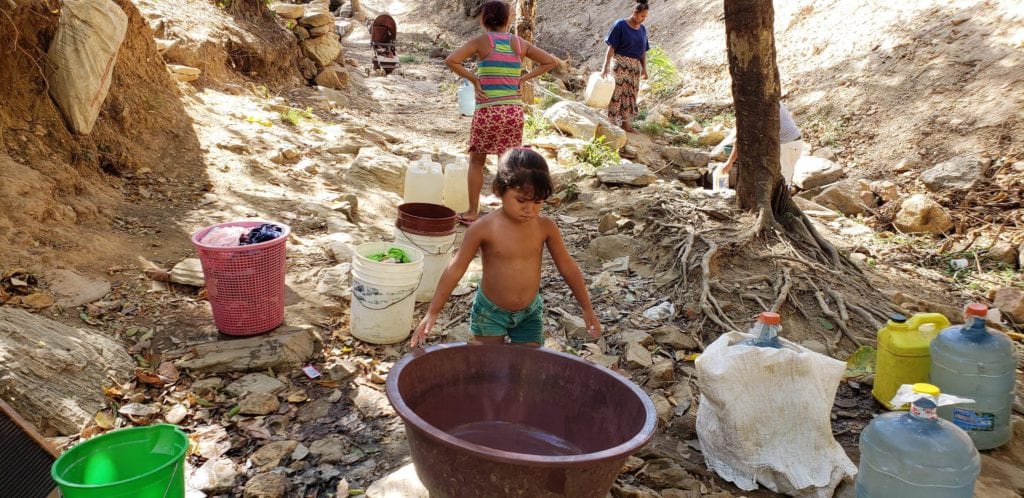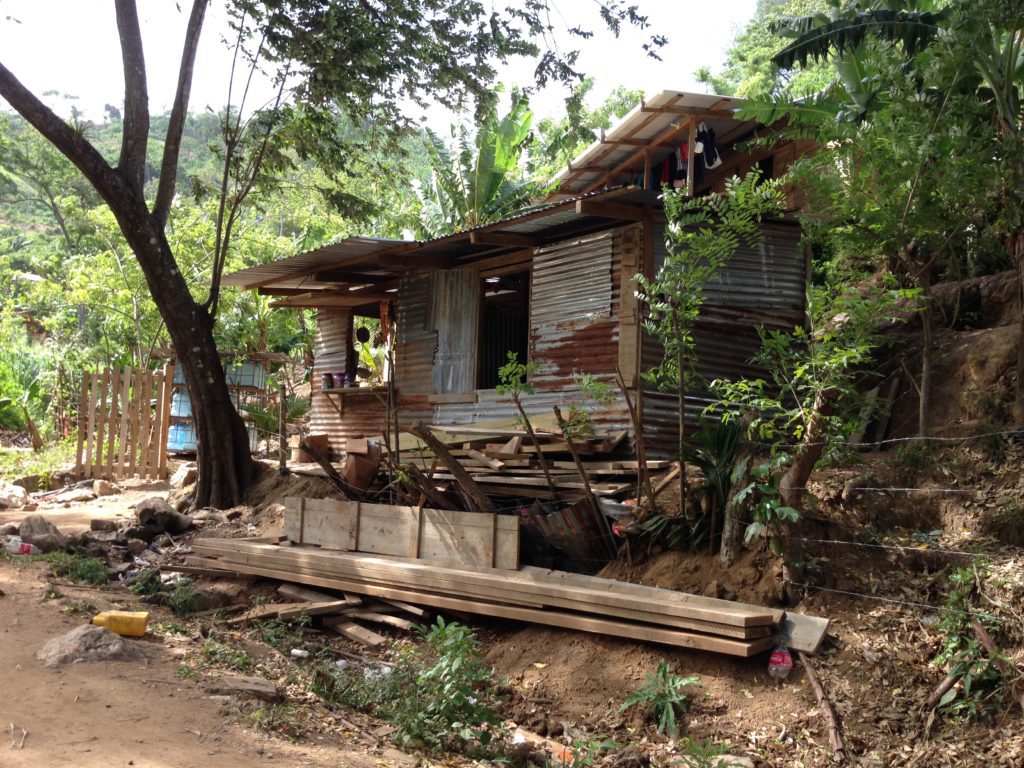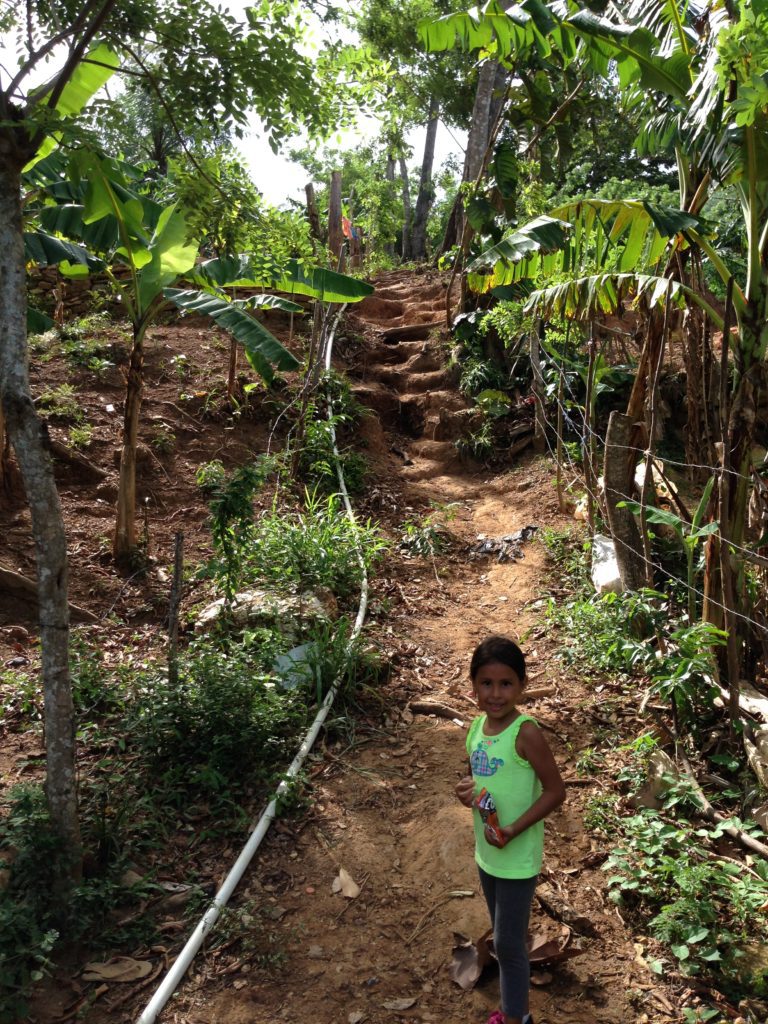
BY DANI TIETZ
dani@mahometnews.com
Imagine for a second:
Your family lives on the mainland where there are very few opportunities. If you can make it to the island, there will be job opportunities, but you would have to start from scratch to build a community: no roads, no water, no homes.
Would you go?
These are decisions that some living in Honduras make.
A booming tourist region, Hondurans are oftentimes able to find work in Roatan. But, they begin with nothing.
“People on the mainland hear there are jobs (in Roatan),” Mahomet-Seymour Spanish teacher Ellen Erickson said. “It’s a very impoverished country.”
“They are kind of like a squatters camp for a while until they can get their parcel of land.”
“(Land) is very cheap because there’s no electricity, no water,” Joey Gruner, a former Mahomet-Seymour soccer coach, said. “They just buy this little piece of land (20 feet by 30) that might be $50.”
Roatan is very forested and mountainous, also.
Joey and Angie Gruner, former employees of the Mahomet-Seymour School District, did not go to Honduras or Roatan for the same reasons.
When Joey visited Honduras in 1999 with a Youth for Christ mission team, he knew he wanted to return. By the spring of 2001, Joey and Angie moved to the island of Roatan with their two children to work with a new orphanage project.
After the orphanage project was completed within a couple months, the Gruners decided to stay a little longer to help in other areas.
They returned to the States in 2003, starting a non-profit organization by 2006. For over a decade, Mission Roatan has sought to raise money for needed resources in the developing Roatan communities.
The money raised has helped to fund community development projects and educational resources.
In 2017, a group of 250 families decided to establish a community, la Colonia Alden Webster, in Roatan. Without an adequate water source, the families, including children, have had to do what they can to get life’s most needed resource.
“They would just literally dig four or five feet down and water would seep up and they would get water from that,” Joey Gruner said.
These holes are where the townspeople would do laundry, get water to wash their dishes and bathe. While they are not supposed to drink from the water, Joey said sometimes, people, especially children, do.
“Then that’s why they are sick all the time; it’s not meant to be drinking water,” Joey Gruner said.
The townspeople do have a drinking water source. They purchase 5-gallon buckets of drinking water, which, according to Joey, are pretty cheap and readily available, but oftentimes, they have to walk down the mountain and back up to bring it home.
But since 2017, the community and Mission Roatan have not just been sitting around hoping that a solution would come. They have been on the ground working to make their community a reality.
Mission Roatan teamed up with Enrique Valdez, who works with these developing communities to drill wells, to raise $20,000 to provide the infrastructure for a reliable healthy, clean, freshwater source.
Kicking off those fundraising efforts were teams of teachers and students in the Fisher and Mahomet-Seymour communities, among others, who wanted to get behind the project.
“In 2017, the high school students raised just over $4,000, probably in about six months,” Joey Gruner said.
Erickson said the opportunity to raise money for the project fit in nicely with the foreign language standards.
Jackie Risley, the AP Spanish teacher in 2017, took the reigns on the unit and raising money.
“I’ve been to Roatan several times. A piece of my heart is there,” Risley said.
“We have a community standard,” Erickson said. “We try to bring in pieces of the community into our classroom, but not just our local community, the global community. (We) look at issues of social justice.
“So that’s where the whole unit of water came from in that we were teaching about the issues of water scarcity throughout the world, and how these issues affect their whole countries how they impact other issues, for example immigration, how those are all interconnected.”
Risley thought, “we could do something.”
By 2018, Mission Roatan was able to raise $10,000 to get the project started.
But in a remote area, like Roatan, that didn’t just mean drilling a well. They had to get a drill truck from the mainland.
“That in itself was $10,000,” Joey Gruner said.
But the truck would have nowhere to drive without the development of roads, so part of the money went to building dirt roads to the village.
Then, the village had to get electricity so that the pumps on the well would work, and there were tacks and gutters that also needed to be put in.
Just as the group began to make headway, the project hit another bump. In Roatan, like many other developing countries, there are property disputes, both from other local villages and government entities.
“Enrique told us, he said, ‘I would not drill here right now because, it’s probably not very likely, but potentially, all these people could get kicked off this land,’” Joey Gruner said.
The pause in development gave the Mission Roatan team time to develop another plan to bring water to la Colonia Alden Webster.
Another Colonia located just on the other side of the crest of the mountain already had wells established. The leaders of the two villages were able to make an agreement to pipe water from the well to the developing village.
Joey Gruner hadn’t been updated on the progress of the water project recently, but Spanish students at Mahomet-Seymour High School talked to Valdez via video chat the Tuesday before Thanksgiving.
“We had the kids prepare questions,” Erickson said. “They were all prepared with their questions in Spanish.”
The conversation included news that Mission Roatan only needs $5,000 in funds to purchase two tanks for water storage and more piping to bring the water to la Colonia Alden Webster.
“So they are basically going to use gravity to pump the water into the tanks and then use gravity to help pull it down to the houses on the other side,” Erickson explained.
Once the money is raised, it may only take as little as two weeks to get the village freshwater.
The students, who have learned about the need for water throughout the world over the last couple months also looked at their own water usage.
“We also looked at innovations, what are some of the things that are being done to help people in these communities,” Erickson said.
“We (also) looked at how do we use water? What do we do in our daily lives? Do we wastewater? What does our own personal hydraulic footprint look like here in Mahomet? How much water do we use? What are some suggestions that we could look at, and could we reduce our hydraulic footprint? Not because it’s going to give water to people in Honduras, but it makes us more conscious and be a better global citizen.”
With this mindset, the Spanish students will take to the cafeteria next week to begin raising money in hopes to reach the $5,000 goal.
As Risley’s class did in 2017, Erickson’s students will take used water bottles with the necks cut off, to give to Mahomet-Seymour students. The students can then fill the bottles with change and bring them back as a donation.
The project is called “Change for Change.”
“It was kind of a fun, creative way to do it,” Risley said.
Making that personal connection is not only important as an educational tool, but it also brings meaning to the project.
Risley began visiting Roatan as a high school student, went back in college and is looking forward to one day being there with her children.
She said it’s more than getting on a plane to help people in poverty.
“There’s people that live in poverty very near to us,” she said.
“Being able to build relationships while we’re there, getting to know them and realizing that they are just like us: they love their families and they want to raise their children in a safe environment.
“I’ve been there, I know them, and I talked to them. They’re my friends.”
She said the trips she took solidified her decision to study Spanish.
Joey Gruner said being part of the la Colonia Alden Webster development has taught him two things.
“There’s people who need water all over the place,” he said. “And they’re all great, they’re all at the same level of need; people need water to survive.”
The difference, though, is knowing a people, not just a place.
“You feel connected to it,” he said.
“And you also know, I can’t save the world. I know I can make a difference here. It’s tangible.”
Joey Gruner said he didn’t ever dream of starting an organization like Mission Roatan.
“I was taking high school and college students down over multiple years, Jackie was a part of that multiple times.
“They got to know people. And honestly, the organization started with some of them saying they were friends with one or two teenage girls.”
Joey Gruner said that led to some of them asking if they could pay for their friends to go to school.
“Once you get that connection, you want to know what you can do,” he said.
The friendship between Enrique and Joey began the same way. Joey was helping out at a soccer camp in Honduras and Enrique asked how he could help.
Valdez and his family will be visiting East Central Illinois after the holidays.
Erickson hopes that students who talked with him via video chat might be able to also meet him face-to-face.
But the use of technology for these purposes is “impactful” and “brilliant,” according to Erickson.
“It’s pretty incredible that we can do that now,” she said. “They see his face and hear his voice. It’s not just us telling them.”
She hopes that experiences like this will encourage global citizenship down the road.
“You do bits and pieces to encourage them to go traveling,” she said. “It doesn’t have to be to Roatan, but just to travel anywhere and make a connection.”
Valdez talked to students about how it’s not about having $5,000, but using their own connections to find contributions.
“As our responsibility as global citizens that is our charge: to take care of and to recognize that there are those and other countries who do not have the same lifestyle that we do and to help them,” Erickson said.
Erickson herself took to Facebook to raise awareness about the need of la Colonia Alden Webster.
“I thought, ‘Oh I’m just going to put this on Facebook.’ You never know, somebody might decide to give $5 or $10; every little bit helps.”
The biggest impact will be though, if, when Valdez comes to the area, the class can present a $5,000 check to him.
“We’ll see; it’s only three days,” Erickson said. “We’re a small school, and we’ll just see what happens.”
To give to Mission Roatan’s water project, you can donate online through PayPal or contact Erickson (eericson@ms.k12.il.us) or Gruner (gruner@missionroatan.org) with a check. PayPal will take a percentage of the donation, whereas 100-percent of any donations earmarked to the water project through Mission Roatan will go directly to this project.






